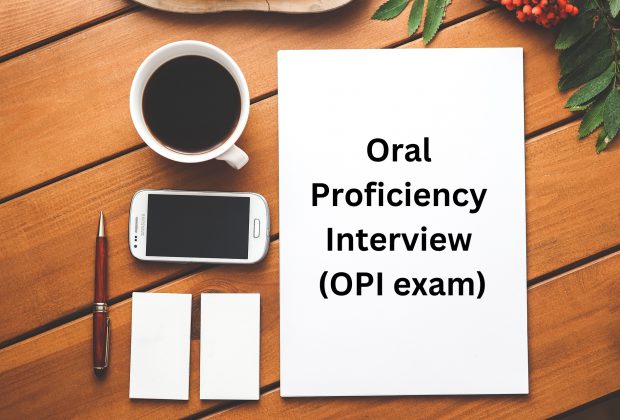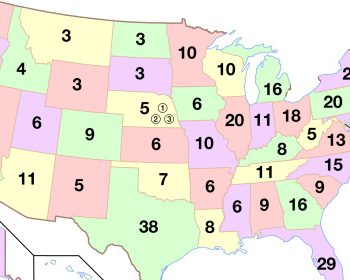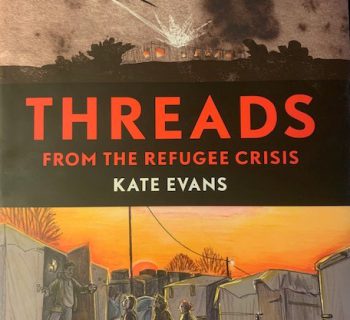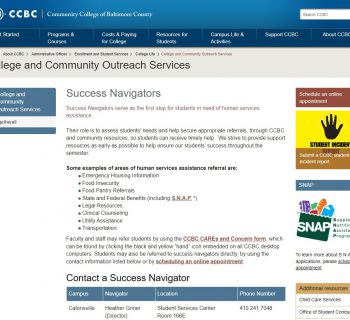The writer of this article was part of a summer honors experience: Voices From Our Backyard: Local News Narratives during which students created and wrote stories to be published in community news outlets.
Layba Azhar
Recently, a 20-year-old Vietnamese girl was sitting on a couch in the library with deep sadness on her face. She unconsciously turned the pages of the book, but she wasn’t reading them.
“I’m worried about world language credits,” Giang Huong Ho, a Community College of Baltimore County computer science student said. “I want to receive college credit for the Vietnamese language, it is my first language and I’m a native bilingual speaker of it.”
Like Huong, more than a thousand CCBC students are bilingual or multilingual. Many, like Huong, want to receive college credits for other languages and wish to complete their degrees faster.
That’s where OPI comes in. OPI stands for Oral Proficiency Interview. It was recently initiated in the Summer (of 2024) with collaboration between the World Language, Global Studies, and Transfer & Degree Acceleration Departments of CCBC. The hope is that it will assist bilingual, multilingual, and international students in obtaining college credits for their home language.
Patrick Kelleher, CCBC Director of Planning, said that in Spring 2024, 14,671 students enrolled in CCBC classes, of which 563 were international students. Similarly, 433 international students registered for Fall 2024 with a total of 11,357 students.
This test not only benefits international students, but many US nationalized students speak more than one language. Everyone who is bilingual or multilingual and wants to certify their language skill and level or wants to get college credits is eligible for the OPI exam.
Language Testing International (LTI) is the creator of the OPI exams. According to the LTI website, OPI is an online exam in which a 15 to 30 minute mobile conversation takes place between a certified ACTFL tester and the candidate. After completion of the exam, the student will receive a certificate from LTI.
The test is available in 120 languages, and students can earn a maximum of 12 credits towards their degrees depending on their level of language proficiency, Soumaya Benrahal, CCBC Associate Professor of world languages said.
There are three main levels of language courses at CCBC: introductory/novice, intermediate, and advanced. These courses are subdivided into low, medium, high, and superior categories for OPI scores. Students can earn 3, 6, 9, or 12 credits in world languages based on their scores. Students can reference page 15 and 16 of CCBC's Credit for Prior Learning (CPL) Course Equivalencies 2024-2025 document for more information.
“With the level of what we call advanced language skills, they will receive the highest number of credits that CCBC can give them for languages,” Benrahal said.
Nicole Zampino, CCBC Coordinator of Transfer and Degree Acceleration stated that, If a student takes an OPI exam in more than one language, they may be able to get more than 12 credits, which could be especially worthwhile if they are in a program of study with open electives, like the Associates of Arts in General Studies.
“These new WLGN language credits can be used to meet arts and humanities general education credits, the CCBC diversity requirements, as well as world language electives,” Zampino added.
To take the test, students first need to make an appointment on the LTI website . They can complete the exam on the phone the day they call for an appointment. Then they will receive a certificate. To receive credits, they should submit the official certificate to CCBC's Prior Learning Department.
“If the person is ready to take it. It might only take them five to six days to do the whole process,” Benrahal explained.
If a student speaks a language in which an OPI exam is not available in, they should contact customer service at LTI. They will hire a new ACTFL certified tester to do the student interview in that specific language, Benrahal said. “So, there is no language that they don't cover.”
The cost of the exam is different for different categories. It is between $100-165. For more information on costs, check the LTI website.
“CCBC is trying to find a way to sponsor this or to pay for it for students,” Benrahal explained. “Right now, the students have to pay out of pocket.”
Zampino said, “The OPI program was initiated at CCBC because the school currently only offers eight world language courses. Students who complete these courses or CLEP, DSST, AP, or IB exams receive credits in that language. However, there is an equity issue for students that come from education systems that teach in languages other than those eight.”
“For instance, imagine a student receives a doctorate, in their language, and it happens to not be one of the eight, they do not receive language credits,” She explained. She said she thinks that all students who have an equal academic language proficiency should get the same arts and humanities and diversity credits.
“OPI was just one way we can offer students to be tested in the 120+ languages that we do not offer,” she said.
There is no on-campus location for the OPI exam at CCBC because it is a completely online exam. But if any student wants to talk with someone before or after the exam for more information contact the World Languages or Transfer and Degree Acceleration Departments directly.
Frank Masel , Soumaya Benrahal , and Nicole Zampino are the contacts from the above departments. Email addresses and links are under the names, just click. It is true the OPI exam is a little expensive for some students, but it saves time, money, and energy. It can also help a student to complete a degree faster.














